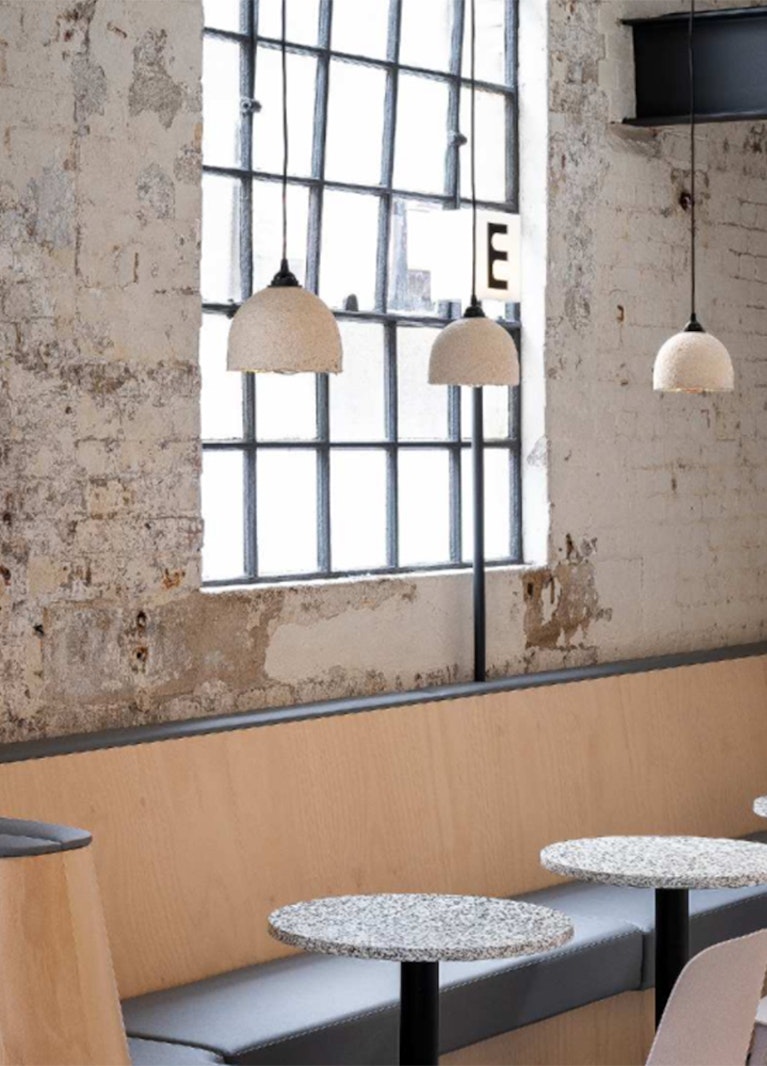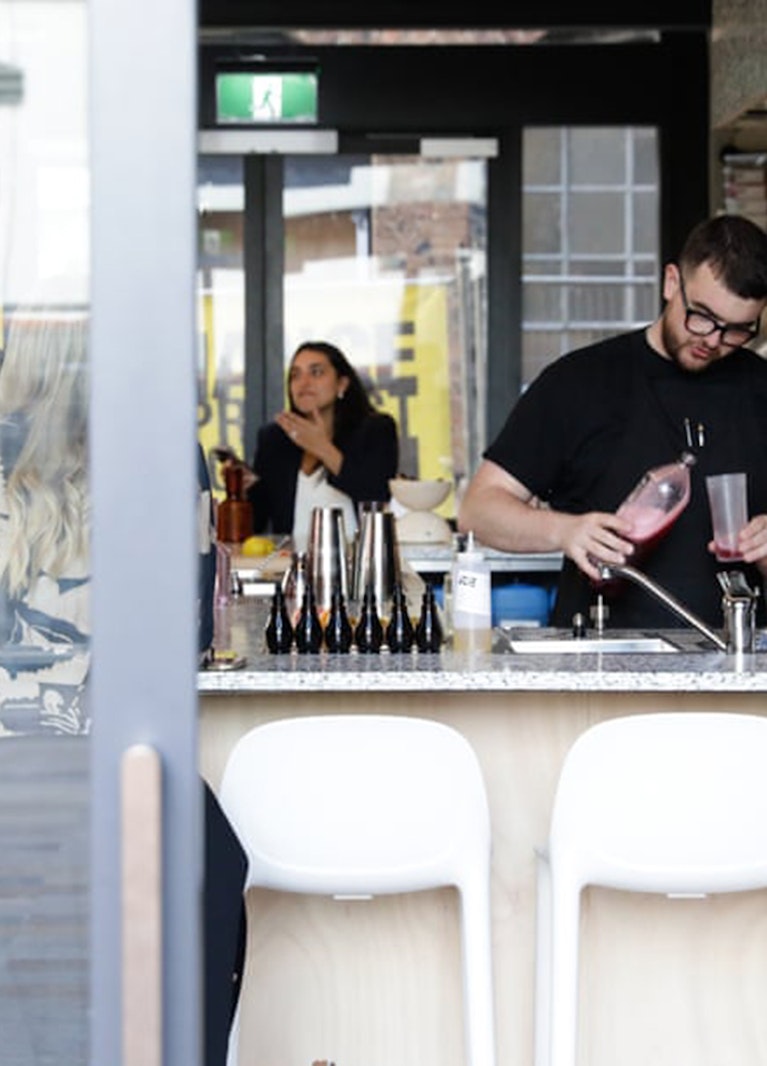HOW EVAN STROEVE IS FORGING AN AMBITIOUS NO-WASTE BAR
One of Australia’s brightest bar talents, Evan Stroeve, has joined international name Matt Whiley, of Scout, London, in creating Re, which aims to be Australia’s most sustainable bar.

Describe Re to us
Re is a little community cocktail bar, located in South Eveleigh, in the old locomotive works. We’re angling to become zero waste. At the moment that looks like being as conscientious as possible—the biggest obstacle will be getting suppliers onboard. It’s a philosophy that relies on everyone, from providores to glass suppliers, but getting a bloke who works at the fruit market and has done things a certain way for 30 years to reverse the way he’s been operating is tricky.
In terms of our practice, we’re very confident that we can achieve zero waste. We try to make use of all of the ingredients we receive, which is something chefs have been doing forever. We use as much of the produce in our drinks as we can and anything that we can’t use gets composted.
The bar itself was produced using recycled and sustainable materials. The bar top and wall cladding is made from HDPE (high density polyethylene) which is recycled plastic made from things like milk containers. The leather on the banquette seating is made from pineapple leaf, and the light shades are made from a mushroom culture called mycelium that has been baked and dehydrated—same as our wine coolers. Our glassware is a mixture of seconds from Maison Balzac and Mud.
What drinks can people expect when they come to Re?
The Wimbledon Gimlet is one of our signature cocktails. Matt collaborated with Empirical Spirits on a cocktail that had a bunch of pickled strawberries in it. We turned the leftover strawberry pulp into vinegar that we cooked down and then distilled it into a pickled strawberry distillate. We’ve also fermented milk whey—it aged for a year before it was ready to drink. And we had a whole bunch of cherry tomatoes and beetroot—too ugly to sell—that we turned into a soda then infused with some spent coffee from over the road. It’s delicious and made from ingredients that would have otherwise gone in the bin. Our drinks list evolves as ingredients are used up.

How can we approach sustainability at home?
Try to find a multitude of uses for each item you buy; choose the eco-friendly options, take your own bag. If you can get to a farmers market, do—you’ll meet the people who are producing your food with no cut going to any representatives like supermarkets.
It’s hard in the inner city, but if you can grow your own produce it’s worth it. If you have access to a communal rooftop perhaps you can start a communal garden or composting co-op. It’s a bit harder finding space in apartments, but not impossible. Even just keeping a compost unit on your bench top that goes into a green bin helps to reduce landfill.
Who do you work with to support your mission?
Our providores, Sydney Direct Fresh, have a Whatsapp group that posts produce that isn’t viable to sell. That’s how we place the bulk of our produce orders. If we’re ordering directly it comes from local growers, which is great as it means we can ask any questions about the ingredients, and profits go directly to the producers. e.g. Redfern honey produces all our honey and is literally up the road.
Jiwah here at South Eveleigh have created the first rooftop garden built entirely around indigenous produce and permaculture. It’s a massive library of indigenous ingredients. They aren’t a providore, but they are planting the area exclusively in indigenous plants and providing us with some garnishes and a few ingredients.
How have people received the concept behind the bar?
People are understanding the concept, but they’re also coming in for a regular gin and tonic or a beer. We’re not here to preach at people, just make delicious drinks.